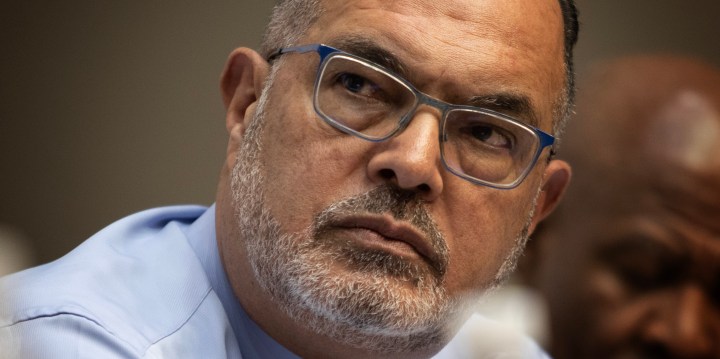MTBPS
Mini budget – Increased tax collection the silver lining in Godongwana’s Medium-Term Policy Statement

Revenue collection from individuals and tax is up, exceeding February’s projections.
Better-than-expected revenue collection from companies and individuals has boosted South Africa’s public finances, with the gross tax revenue estimate revised up by R83.5-billion, to R1.68-trillion.
Finance Minister Enoch Godongwana released the Medium-Term Budget Policy Statement (MTBPS) speech on Wednesday, 26 October at Cape Town’s City Hall.
He said improved revenue collection has not only bolstered the government’s cash position in the short term, but also helped it narrow the deficit and mitigate against lingering and new risks.
Most of this tax windfall is expected to fall away over the next two years. As such, the government says it will not rely on “transitory” revenue gains to fund permanent spending hikes; rather, it will use them to reduce risks and contingent liabilities.
Key concerns for the Finance Ministry are the country’s debt burden and debt-servicing costs: Godongwana says adopting a prudent approach to reducing debt will help stabilise public finances and reduce fiscal risks.
On revenue collection, Godongwana said gross tax revenue is now estimated to be R92.6-billion higher over the 2022 medium-term expenditure framework (MTEF) period compared to estimates presented in his February 2022 Budget, but it’s a projection associated with “significant uncertainty”. Such revenue projections have changed rapidly before, the minister warned, as seen during and after the Covid-19 pandemic, adding that any downward revisions would place the current fiscal strategy under significant pressure. If aggressive global monetary policy tightening results in an enduring slowdown in global growth, SA’s fiscal outlook could deteriorate as revenue collections falter and debt-service costs increase.
Structural economic constraints, such as an unreliable electricity supply, inefficiencies in network industries and a high cost of doing business, are an added threat to growth, and failure to address them could place additional pressure on the fiscus.
Visit Daily Maverick’s home page for more news, analysis and investigations
The Treasury says while the increase in revenue will be used to hike spending on health, education and local government free services, infrastructure and safety and security, a portion will also be allocated to reducing the budget deficit.
The in-year revenue outlook is positive, with strong collections in the first half of the 2022/23 fiscal year. While elevated commodity prices have waned, corporate tax collections have recovered, which the department says bodes well for the remainder of the year. But these projections are heavily dependent on a stable power supply, global growth and a further escalation of Russia’s war in Ukraine.
“We are doing all this in a global environment that is not necessarily favourable,” said Godongwana. “We are dealing with domestic headwinds, with electricity supply the top [concern].”
He said despite the geopolitical environment, domestically, tax collection was favourable, but “we need to continue reducing debt service costs”.
Compared to February’s Budget, the gross tax revenue estimate has been revised up by R83.5-billion, due largely to better-than-expected tax collections, upward revisions to near-term tax base growth and strong corporate tax collections.
Companies contributed R332-billion to the fiscus; individual tax collections R596.1-billion; dividends tax R36.2-billion; excise duties R55.5-billion; customs duties R72.6-billion; ad valorem excise duties R4.8-billion; and other R68.4-billion. Both the fuel levy and VAT collection were revised down: the former by R8.5-billion, to R80.6-billion, while VAT collection was adjusted by -5% to R434.9-billion.
Fuel levy collections were projected to fall short of expectations due to the fuel levy relief offered in the first half of the year.
Key factors in the revenue collection include:
- Higher profitability in the manufacturing and finance sectors, with historically high contributions from the mining sector;
- Large import volumes and prices contributing to strong customs duty collections;
- A recovery in earnings and better bonus payments for financial sector employees (although employment growth remains weak);
- Revised VAT collections as higher VAT refunds “more than” offset improved VAT receipt. VAT refunds averaged at R25.1-billion a month over the first half of the fiscal year, driven largely by higher capital expenditure in the finance sector and manufactured imports. Lower household disposable income weighed on domestic VAT collections.
The tax-to-GDP ratio is expected to increase to 25.3% in the 2022/23 fiscal year, up from 24.9%.
Over the medium term, tax revenue is expected to increase to R2.04-trillion, or 25.4% of the GDP, with tax-to-GDP ratio and nominal revenue collections expected to exceed pre-Covid projections. BM/DM















 Become an Insider
Become an Insider
Comments - Please login in order to comment.